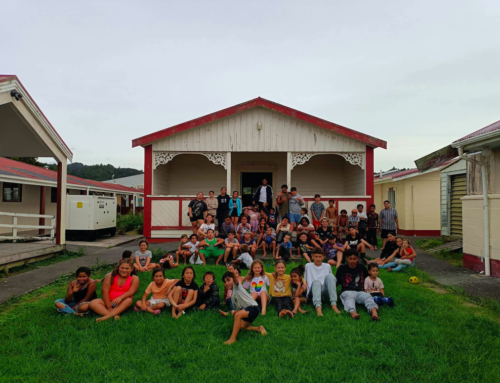AES editorial intern and University of Colorado PhD student Drew Zackary interviews Hugh Gusterson about his latest book.
The conversation moves from discussions on polemics in anthropology, war crimes and drone strike policy, to grad student survival strategies. Dr. Gusterson is an expert in military weapons technology, counter-insurgency and the US military. His wide ranging scholarly output has moved from topics such as nuclear weapons to the critique of punditry in the contemporary media. Dr. Gusterson’s latest book is “Drone: Remote Control Warfare”, published by MIT Press in 2016.

Drew Zackary (DZ): How did you come to deciding to write a whole book about drones?
Hugh Gusterson (HG): It wasn’t logically planned. Actually MIT press asked my wife to write a book on nuclear reactors and she said she was too busy. But she told the editor at MIT press that “my husband keeps reading all these articles on drones why don’t you ask him to write a book?” MIT press has this series where they want very short readable and teachable books, so the idea was that they wanted people who could write a short book on something topical. Originally they wanted nuclear reactors, but they settled on drones.
DZ: Why did you become fascinated with drones?
HG: Well, as you know I write about weapons technology, the military and counter-insurgency. In the context of following counter-insurgency I started to see these drone strikes taking place. As someone who is interested in the anthropology of science and technology the particular attempt to automate counterinsurgency is interesting. I am always interested in things that are ambiguous, that are on an edge. And drones are like that. The way the Obama administration spoke about them sometimes it was if they were tools of police work and sometimes it was if they were weapons of war. The military was not quite sure whether to call them “aircraft” or not, whether to call the people who fly them “pilots” or “operators.” I’ve asked people whether drone operators had been in combat and I would get very different answers. So, I am interested in things that scramble categories, and drones seem to me to do that. And they raise very urgent questions. I think for anyone who cares about American democracy, realizing that it is so easy for a president to use drones on their own initiative in places where the US is technically not at war and this expands war making capability. I find this really troubling. And I am even more troubled that hardly anyone debates it. So one of the reasons for writing the book was to try to provoke a debate.
DZ: Interesting you say “troubling,” because unlike other writers like Jeremy Scahill, you don’t engage in polemics in this book. You don’t take a solid ethical stance, but yet you hint at it. Why choose not to engage in polemics the way that other writers about drones have?
 HG: Do we need another polemic against drones? I could never do it as well as Jeremy Scahill does it. In most of my writing on weaponry, even though it’s clear that I write from a sort of anti-military stance, I do always try to capture the view of the people who make the weapons, the people who operate the weapons, and the people who fight in the wars. I think a responsible ethnographer should always be trying to account for all the different constructions of a reality. And if you condemn half of the people in a social field then I am not sure you are doing ethnography well. I guess you could do polemical ethnography. I am not interested in that. So I wanted something that people who are inclined reflexively to like drones would not be turned off by it. I wanted someone who fought in the wars in Iraq and Afghanistan would not be immediately turned off by it. I was actually invited by military veterans of New York to do a reading there. Lots of military vets came. So I was pleased to find that people on that side found a lot in the book that they could relate to. They felt it portrayed what they struggle with accurately. I don’t think the book whitewashes. I think the book creates a sort of middle ground where they feel comfortable struggling with people on the other side. The thing about a polemic is that it creates solidarity for the group that appreciates the polemic and it totally turns off the people that are the “targets,” if I can use a military term. I am interested in trying to find ways of creating dialogue. Two or three drone operators have actually come up to me since I wrote the book and they seemed to have a positive reaction to it. Which is interesting.
HG: Do we need another polemic against drones? I could never do it as well as Jeremy Scahill does it. In most of my writing on weaponry, even though it’s clear that I write from a sort of anti-military stance, I do always try to capture the view of the people who make the weapons, the people who operate the weapons, and the people who fight in the wars. I think a responsible ethnographer should always be trying to account for all the different constructions of a reality. And if you condemn half of the people in a social field then I am not sure you are doing ethnography well. I guess you could do polemical ethnography. I am not interested in that. So I wanted something that people who are inclined reflexively to like drones would not be turned off by it. I wanted someone who fought in the wars in Iraq and Afghanistan would not be immediately turned off by it. I was actually invited by military veterans of New York to do a reading there. Lots of military vets came. So I was pleased to find that people on that side found a lot in the book that they could relate to. They felt it portrayed what they struggle with accurately. I don’t think the book whitewashes. I think the book creates a sort of middle ground where they feel comfortable struggling with people on the other side. The thing about a polemic is that it creates solidarity for the group that appreciates the polemic and it totally turns off the people that are the “targets,” if I can use a military term. I am interested in trying to find ways of creating dialogue. Two or three drone operators have actually come up to me since I wrote the book and they seemed to have a positive reaction to it. Which is interesting.
DZ: Following up. Are double tap strikes a war crime?
HG: I think so. Yes. I am sure there are people who would deny it. People in the CIA. But its not just people on the left in the US. The UN special rapporteurs have condemned it as a war crime. So, there are some drone strikes I would defend. I gave a talk last week and someone at the end said “Well, shouldn’t we just ban them?” And I said “No, you know there are times that if I was on the ground I’d rather it was a drone up there shooting than an F16 or an A10 warthog. There are some uses of drones I would defend. But not double tap strikes. A double tap strike is where you are attacking people who rescue the survivors of the first strike or people at a funeral. And its like attacking the Red Cross on the battlefield.
[pause]
One other thing about the polemic question that you asked. The way I wrote the book the most polemical chapter is the very last chapter. That is not a coincidence. The last chapter is on whether US drone strikes outside official warzones are legal. I think it’s in that chapter that I take the clearest stance and say that they are not. And I give both sides of the argument. I hope that I create enough trust with the reader that I could come a little bit more out of my shell in that last chapter and not lose them. Or if I did lose them then at least they would have read the rest of the book at that point.
DZ: I am glad you brought up the last chapter. You essentially give two divisions for the future of drone use. One is a dystopia, and the other more hopeful. You argue the best hope would be for the internal deep government to make decisions that this [drone warfare] is not effective. I wonder then, if we don’t have an endgame for our conflicts how can we trust the deep government to make a decision on the overall use of drones without a framework for how this all ends?
HG: Well, they have their own framework. It is whether a tactic is making things better or worse. They also have other criteria like whether American casualties are high or low. Unfortunate, as far as their criteria goes, drones are extremely desirable. I do know now from giving many talks and having military people come up to me afterwards that there are a lot of people in the national security state who really don’t like drones a whole lot. The debate is not in public, but it seems to me that there is a debate in the national security state about whether the US use of drones is wise and productive. I could not annotate that debate very clearly, or tell you the balance of forces within it. But it is clear that there are people in the CIA and the Army and so on who have big questions about drones. It is now becoming clearer that we have lots of drones today and lots of people will have them tomorrow if we set this example. ISIS is already using homemade drones against US troops. Nigeria recently used its own drone. Pakistan used its own drone to kill somebody. So clearly this is a technology that will proliferate. And if I were in the CIA I would be asking; do we want a world where all these other countries can attack American soldiers with drones, and what might we have to give up to stop that from being the world we live in?
[Pause] So I don’t expect them to think about it like a peace activist, but if they are thinking about it like a warrior there are still good reasons for not liking drones.
DZ: Speaking of your dystopian vision [for drones], something struck me about it. I wonder why mass political movements on the left as opposed to emboldened nationalistic right, the “McVeigh Brigade” and such you write about, are not part of your vision? Do you not see a vibrant leftist political movement happening?
HG: Against drones? I see a vibrant leftist movement happening against Trump right now. In a way that’s very inspiring. But not against drones. The protests I’ve seen against drones have been tiny.
[pause]
They [drones] are used out of sight out of mind. Most people just don’t care. And as someone who’s written about many previous wars and how protest against them materialized they usually materialize when dead Americans come home in body bags. And that’s exactly what drones are there to prevent. I don’t expect a massive movement against the use of drones abroad. There could be mass movements in the countries in which they are used. So in Pakistan or somewhere like that. But not in the US.
DZ: This relates to your work on punditry. How do pundits misunderstand the ideology of drone warfare and retranslate it in ways that you find frustrating or dangerous back into the public sphere?
HG: I don’t see pundits writing about drones that much. People like Scahill and Glen Greenwald on the left write about them. But they write about them in relatively obscure places like the intercept. I see very little about drones on the op-ed pages of the New York Times or the Washington Post. The only piece that comes to mind in the Washington Post was by general David Deptula who is the ‘high priest’ of drones, and was promising that drones were a miracle technology that would solve everything.
DZ: Do you think the concept of a “counter-insurgency war” on its face is still useful?
HG: It is. I actually debated General Deptula on the radio for an hour. The moderator was quite permissive and let me ask him questions. And I asked him if he could name a counter-insurgency war that was his model for how to win. And he could not. I can name an awful lot that did not go as they were supposed to. Algeria, Northern Ireland, Iraq, Afghanistan. Not only that but the British in Afghanistan, the Soviets in Afghanistan. Also Malaysia, Kenya, Zimbabwe. I am hard pressed to think of a counter-insurgency war except Sri Lanka that ended in victory for the counter-insurgents and the only way it ended in victory there was through genocide.
[pause]
So, it certainly is a useful term. It describes something real. I am struck that military commanders keep believing they can win it. When did America last win a counter-insurgency war? Maybe in the Philippines decades ago. But in the recent decades, it’s not looking good.
DZ: Graduate students in anthropology have been concerned how to “study up” since the Vietnam era. How have your views on this idea evolved over a career that has explored US political power? Does this kind of research take a different type of anthropological outlook, or even tenacity?
HG: When I did my first fieldwork, studying a nuclear weapons laboratory, it seemed to me that the main problem to solve in studying up was the problem of access. That’s still a major problem and, if anything, it’s got worse: people with power are protected by minders and PR flacks; in an era of digital surveillance, middle level elites are afraid that anything they do will be known by those above and held against them; and corporations and government institutions have just become more officious. But it now seems to me there’s an additional problem: the difficulty of writing with warmth (albeit critical warmth) about elites. American society has become more politically polarized since I started studying up, and anthropology has become a more politically correct discipline, and this seems to me to have shrunk the space for studying up — even though studying up is now needed more than ever before.
As for your question about tenacity, the more I learn about other people’s fieldwork, the more impressed I am by the stamina and tenacity of all my colleagues, many of whom do fieldwork in physically arduous, even dangerous, circumstances. So I certainly wouldn’t want to say that studying up in the US takes more tenacity. But it takes a different kind of openness, perhaps. Most anthropologists would rather hang out with headhunters than accountants who voted for Donald Trump and, when they write about Donald Trump, it shows.
DZ: Has there been a surprising response to your work? Has a technocrat, government official or a previously unknown person or group reached out and contacted you with appreciation? Or on the flip side, even ire?
HG: While I was still a graduate student in the field, I was surprised that a nuclear weapons designer stopped talking to me because he was offended by something I’d written. You might think that I’d written something antinuclear, but that was not the case. He was upset that I’d likened nuclear tests — pristine scientific experiments — to rituals. That taught me to tone down the anthropological language.
Over the years I’ve been contacted by a number of people I didn’t know who had some sort of connection with the nuclear weapons lab I wrote about in my first book. The response that most moved me was a four-page handwritten letter from a woman who had been estranged for several years from her father, who was a nuclear weapons scientist. She said she began weeping while reading my book, then got in her car and drove several hours to try and reconcile with him.
A few years ago I wrote a piece for the Bulletin of Atomic Scientists arguing that the two nuclear weapons labs had been weakened and undermined not by antinuclear activists and liberal politicians, but by conservatives and Washington bureaucrats who blew every scandal out of proportion and instituted fixes that were worse than the problems they addressed (making weapons scientists start taking polygraph tests, for example). I knew from my conversations with nuclear weapons scientists over the years that these actions by their supposed allies had really damaged morale at the weapons labs, and I thought someone should publicly point out this irony. To my surprise, the article went viral, and my inbox started to fill with thank-you messages — including thank-you messages from three former directors of the weapons labs.
DZ: What is a forgotten or largely unread ethnography from the 20th century that you love and wish was read more today?
HG: Sharon Traweek’s “Beamtimes and Lifetimes” was so important to me — another anthropologist studying physicists.
DZ: With general melancholy sometimes gripping graduate students in our contemporary moment, we often wonder how to survive thinking and writing about bad things. What survival tactics have you found that keep life optimistic and scholarly work balanced?
HG: A dog!




